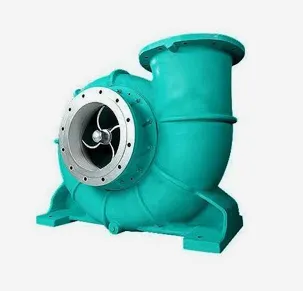Punjabi
- Afrikaans
- Albanian
- Amharic
- Arabic
- Armenian
- Azerbaijani
- Basque
- Belarusian
- Bengali
- Bosnian
- Bulgarian
- Catalan
- Cebuano
- Corsican
- Croatian
- Czech
- Danish
- Dutch
- English
- Esperanto
- Estonian
- Finnish
- French
- Frisian
- Galician
- Georgian
- German
- Greek
- Gujarati
- Haitian Creole
- hausa
- hawaiian
- Hebrew
- Hindi
- Miao
- Hungarian
- Icelandic
- igbo
- Indonesian
- irish
- Italian
- Japanese
- Javanese
- Kannada
- kazakh
- Khmer
- Rwandese
- Korean
- Kurdish
- Kyrgyz
- Lao
- Latin
- Latvian
- Lithuanian
- Luxembourgish
- Macedonian
- Malgashi
- Malay
- Malayalam
- Maltese
- Maori
- Marathi
- Mongolian
- Myanmar
- Nepali
- Norwegian
- Norwegian
- Occitan
- Pashto
- Persian
- Polish
- Portuguese
- Punjabi
- Romanian
- Russian
- Samoan
- Scottish Gaelic
- Serbian
- Sesotho
- Shona
- Sindhi
- Sinhala
- Slovak
- Slovenian
- Somali
- Spanish
- Sundanese
- Swahili
- Swedish
- Tagalog
- Tajik
- Tamil
- Tatar
- Telugu
- Thai
- Turkish
- Turkmen
- Ukrainian
- Urdu
- Uighur
- Uzbek
- Vietnamese
- Welsh
- Bantu
- Yiddish
- Yoruba
- Zulu
Telephone: +86 13120555503
Email: frank@cypump.com
ਅਕਤੂਃ . 17, 2024 02:29 Back to list
high pressure slurry pumps
Understanding High-Pressure Slurry Pumps Applications, Design, and Benefits
High-pressure slurry pumps are essential components in various industries that deal with the transportation of abrasive and viscous materials. These pumps are designed to handle mixtures of solids and liquids, commonly referred to as slurries. From mining and mineral processing to wastewater treatment and chemical manufacturing, high-pressure slurry pumps play a pivotal role in ensuring efficient and reliable operations. In this article, we will explore the significance, design features, applications, and benefits of high-pressure slurry pumps.
Significance of High-Pressure Slurry Pumps
The primary purpose of high-pressure slurry pumps is to move complex mixtures, which can include materials such as sand, gravel, coal, or chemicals, over significant distances and against considerable resistance. Unlike conventional pumps, high-pressure slurry pumps are specifically engineered to withstand the wear and tear associated with transporting abrasive particles. This capability not only prolongs the life of the pump but also minimizes maintenance and replacement costs.
Design Features
High-pressure slurry pumps are characterized by several design features that enable them to perform effectively in challenging environments. Key design elements include
1. Robust Materials The components of high-pressure slurry pumps are often made from durable materials such as cast iron, stainless steel, or specialized alloys. These materials provide resistance to corrosion, wear, and impact from the abrasive nature of the slurries being pumped.
2. Impeller Design Impellers in high-pressure slurry pumps are engineered with specific geometries that allow for efficient handling of slurries, optimizing the flow and pressure. They are often designed with a high head and flow capacity, ensuring the pump can manage the required pressure levels.
3. Sealing and Bearing Systems To enhance reliability, these pumps are equipped with advanced sealing technologies and bearing systems that minimize leakage and wear. Effective seals prevent contamination and ensure the integrity of the pumped materials.
4. Self-Priming Capabilities Many high-pressure slurry pumps come with self-priming features that simplify operation, allowing the pump to start pumping efficiently without manual intervention.
Applications of High-Pressure Slurry Pumps
High-pressure slurry pumps are utilized in a variety of sectors, demonstrating their versatility and importance
high pressure slurry pumps

1. Mining and Mineral Processing In the mining industry, these pumps transport slurry from the mining site to the processing facility. This includes the movement of materials like tailings, ore, and concentrates, where high pressure is required to overcome significant elevation changes.
2. Construction In construction, high-pressure slurry pumps are used to manage waste and transport cement slurries in the process of creating concrete structures.
3. Wastewater Treatment High-pressure slurry pumps are also pivotal in wastewater treatment facilities, where they handle the transport of sludge and other by-products, ensuring effective treatment processes.
4. Chemical Processing In chemical manufacturing, high-pressure slurry pumps facilitate the movement of viscous and corrosive materials, playing a crucial role in the production of various chemical products.
Benefits of High-Pressure Slurry Pumps
The advantages of using high-pressure slurry pumps are numerous
1. Increased Efficiency These pumps are designed to handle slurries with high solids content, ensuring that processes run smoothly and without interruptions.
2. Cost-Effectiveness By reducing maintenance needs and prolonging the life of the pump, companies can witness significant savings in operational costs.
3. Versatility High-pressure slurry pumps can be customized for various applications, making them suitable for diverse industries.
4. Reliable Performance With advanced design features, these pumps ensure consistent performance, vital for industries where downtime can lead to substantial financial losses.
Conclusion
High-pressure slurry pumps are indispensable tools in industries dealing with abrasive and viscous materials. Their robust design, efficient operation, and ability to handle challenging environments make them critical for processes in mining, construction, wastewater treatment, and chemical manufacturing. As technology advances, we can expect continued improvements in the efficiency and reliability of these pumps, further solidifying their role in industrial operations. Understanding high-pressure slurry pumps and their benefits can help businesses optimize their processes, lower costs, and enhance overall productivity.
-
Horizontal Split Case Pump with GPT-4 Turbo | High Efficiency
NewsAug.01,2025
-
ISG Series Pipeline Pump - Chi Yuan Pumps | High Efficiency, Durable Design
NewsAug.01,2025
-
Advanced Flue Gas Desulfurization Pump with GPT-4 Turbo | Durable & Efficient
NewsJul.31,2025
-
ISG Series Vertical Pipeline Pump - Chi Yuan Pumps | Advanced Hydraulic Design&Durable Construction
NewsJul.31,2025
-
ISG Series Vertical Pipeline Pump - Chi Yuan Pumps | Energy Efficient & Low Noise
NewsJul.31,2025
-
pipeline pump - Chi Yuan Pumps Co., LTD.|High Efficiency&Low Noise
NewsJul.31,2025










